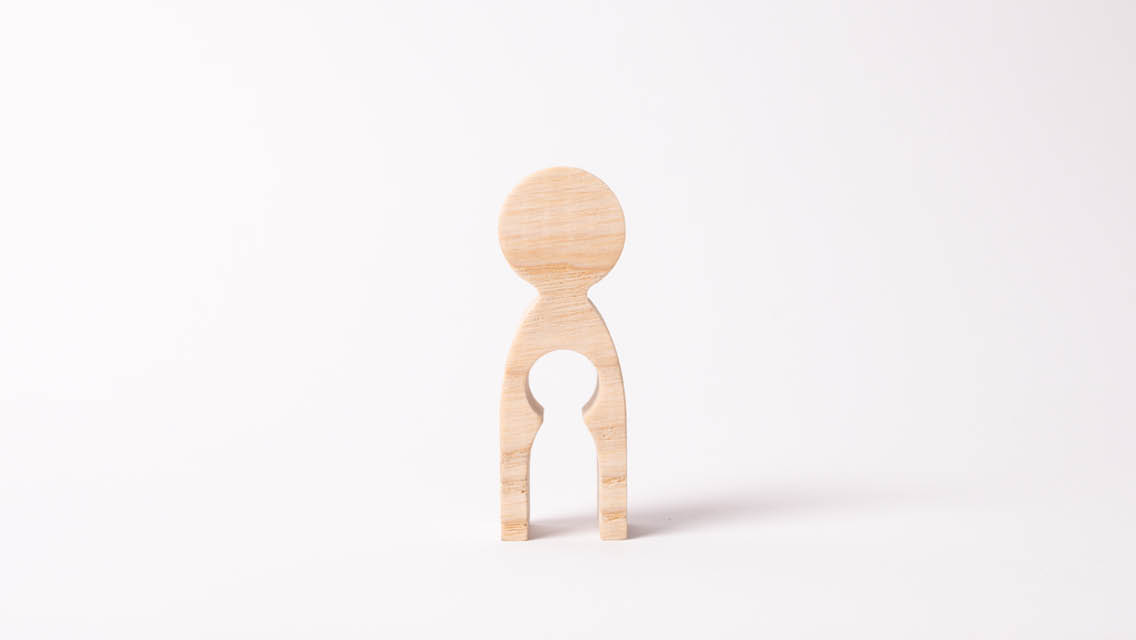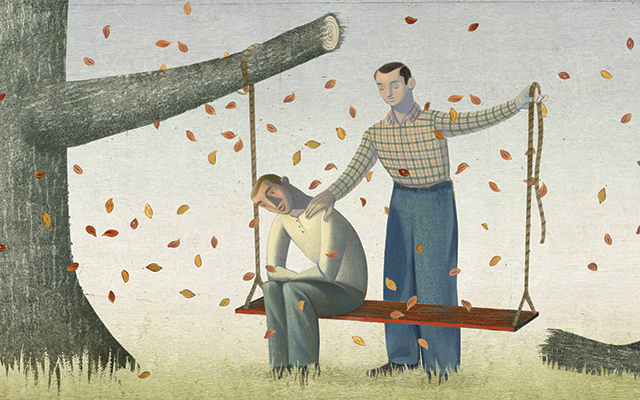Kelly and Nick had long wished for a brother or sister for their daughter Mika. So, when Mika turned 2, they were delighted to learn that Kelly was pregnant. Around the seven-week mark, she began experiencing morning sickness. To quell Mika’s concern, they let their daughter know that “baby sibling” was growing in mommy’s belly.
Kelly went in for her eight-week ultrasound excited but calm, confident that she knew what to expect her second time around. What happened next was anything but expected. The doctor couldn’t detect a heartbeat. “It’s possible that the baby is still so small it needs a little more time,” she said. “Come back in two weeks.”
Kelly spent those two weeks in agonized anticipation — only to learn at her follow-up appointment that the baby had not survived.
A Commonplace Trauma
Miscarriages are defined as the loss of a baby before 20 weeks; those lost after 20 weeks are generally referred to as stillborn. As many as one in two pregnancies end in miscarriage, and while most occur before the woman realizes she’s pregnant, a significant proportion — estimates range from one to two in 10 — occur after she knows.
The causes of miscarriage run the gamut. Risk factors include maternal age, hormonal irregularities, underlying medical conditions, and, most commonly, chromosomal abnormalities, which typically occur by chance and are not linked to either parent’s health.
Often, the cause remains unknown. And this is just one reason why the experience takes such a toll.
“Humans are geared to ask ‘Why?’” explains psychologist Krista Post, MA, LP, clinic director and CEO of The Postpartum Counseling Center in Golden Valley, Minn. “When something as personal as miscarriage occurs, usually with no explanation offered, our brains naturally jump to ourselves as the culprit.”
To be sure, some women react by saying “Oh well, we’ll try again.” But Post has counseled women who perceived the loss as a personal failure or inadequacy, or even interpreted their miscarriage as punishment for past mistakes.
While Kelly never blamed herself, she did experience a deep sense of grief following her miscarriage. “It was like experiencing a death,” she recalls. “The death of a future — the path we thought we were on.”
Trying Again — and Again
Devastated by the loss of their child, Nick and Kelly then faced another grim task: explaining to Mika that “baby sibling” had “gone to live up in the sky.” After recovering, they decided to try again, and again the pregnancy came quickly. But this time, so did the loss.
Just five or six weeks after conception and only a few days after a positive test result, Kelly began bleeding profusely. She was rushed to the emergency room where she learned that, once again, she had miscarried.
“In a way, it wasn’t as devastating this time because I hadn’t allowed myself to emotionally commit,” she recalls. “Instead, I went into problem-solving mode.”
She and her husband underwent genetic and blood tests, searching for answers. Everything came back normal — which was a mixed blessing.
“Learning that there was no identifiable cause allowed me to remain hopeful,” Kelly says. “But it also felt disempowering. Since there was nothing I could do differently, having another child felt completely out of my control.”
So she and Nick tried once more, knowing that the numbers were on their side. Eighty-seven percent of women who miscarry will go on to have normal pregnancies. And Kelly’s odds of suffering another miscarriage were now extremely low: Only about 1 percent of women have three miscarriages in a row.
Yet again, Kelly got pregnant. And yet again, the doctor could not find a heartbeat when she went in for her seven-week ultrasound. Worse, the pregnancy was a partial molar pregnancy, a rare complication involving abnormal placental tissue.
This diagnosis, coupled with the fact that she was now in her late 30s and had experienced three consecutive miscarriages, put Kelly in the high-risk category. They’d have to wait at least six months to allow her body to recover before trying again.
The Impact on Relationships
Coping with the loss of a pregnancy while trying to conceive again consumes significant emotional energy. But, for better or worse, daily life goes on — as do the lives of others, including other parents.
“Women and couples watch people around them — friends, coworkers, neighbors, family — with growing bellies and healthy babies,” says Post. This can breed frustration, resentment, and further isolation.
And though the presence of an existing child can buffer the grief and offer a welcome distraction, it may also engender conflict.
“Miscarriage may trigger disagreement between couples when one partner wants to settle into the existing family and the other desperately longs for a child,” she explains.
No matter a couple’s current or hoped-for family structure, miscarriage — especially recurrent miscarriage — can put enormous strain on the relationship.
“For many couples, a miscarriage is often the first significant hardship they’ve had to endure together. Each partner is challenged to exhibit an emotional and relational maturity they may not yet have,” says Post. “If one partner is very emotive and has a great deal of difficulty regulating and managing feelings, or if a partner lacks empathy or ability to show emotional tenderness, the other one will undoubtedly suffer. If these issues persevere, so does marital dissatisfaction.”
Then again, the experience may bond a couple like never before.
“Our relationship actually grew stronger,” Kelly explains. “We had to rely on each other.”
After the six-month waiting period, Kelly and Nick began trying again. When Kelly got pregnant for the fifth time, she half expected another miscarriage. This time, however, the first ultrasound showed a healthy, normal heartbeat.
“I cried for days,” she recalls. “I think it was a catharsis after having held in my emotions for so long.”
Still, pervasive fears of another loss plagued Kelly throughout her pregnancy. Only by the third trimester did she finally trust that she was going to deliver the baby — and even then, she never completely relaxed the way she had when pregnant with Mika.
Aven entered the world happy and healthy. By then, two and a half years had passed since Nick and Kelly had begun trying for their second child. The joy — and relief — was like nothing they would have imagined.
“Every day with Aven feels like a gift,” says Kelly. “I am so grateful, and so much more aware that reproduction is, in many ways, not within our control.”
Nick and Kelly’s story had a happy ending, but not all do. Roughly 10 percent of couples trying to conceive never carry a baby to term, and that rate increases with age. That so many women internalize reproductive difficulties as a personal failure is one reason Kelly wanted to share her story.
“It’s important for women to know that they aren’t alone,” she says. “By removing stigma, hopefully we can move away from shame.”
What You Can Do If You Have Experienced a Miscarriage
Get more information: Read about the causes of miscarriage and insist on testing for specific risk factors and conditions. “One cause of miscarriage is revealed by a simple blood test, but frequently it isn’t even offered until a woman has experienced recurrent miscarriage,” says psychologist Krista Post, MA, LP. “If your doctor dismisses your concern after two or more miscarriages, switch doctors or seek out a reproductive endocrinologist.”
Get support: Connect with others who have experienced miscarriage or infertility to alleviate feelings of isolation. Also consider getting professional support, individually and as a couple. A therapist — ideally one who specializes in perinatal and reproductive mental health — can help you navigate your emotions and communicate more effectively as a couple.
Give yourself a pass: Avoid self-blame and, if needed, avoid triggering situations for a while. If that means skipping some holidays, baby showers, or birthdays, so be it.





This Post Has 0 Comments